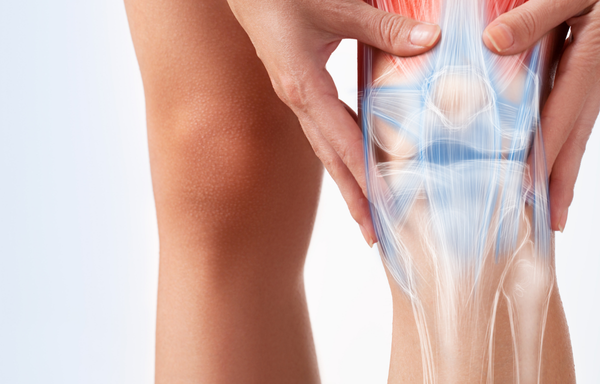

Joint Pain? It Might Be Insulin Resistance—Not Just Your Age
Let’s talk about joint pain.
Most people blame it on getting older, a bad mattress, or maybe that one time they rolled their ankle in 2004. But what if your aching knees, stiff hips, and sore back have less to do with your age, and a lot more to do with your insulin levels?
Because here’s the truth: Chronic inflammation is the root of joint damage—and one of the biggest drivers of inflammation?
You guessed it: insulin.
Collagen Isn’t a Fix for an Inflammatory Lifestyle
Let’s clear something up: collagen supplements can be helpful as part of a well-rounded approach to joint health. But if you’re dealing with ongoing inflammation from elevated insulin, collagen alone isn’t going to undo the damage.
In other words, if your diet and lifestyle are constantly telling your body to stay inflamed, no supplement, no matter how clean or hydrolyzed or expensive, is going to fix that.
How Insulin Drives Joint Inflammation
Aside from glucose control, Insulin also acts as a powerful growth and signaling hormone. When insulin levels are elevated too often, especially in people with insulin resistance, it creates a state of low-grade, chronic inflammation throughout the body.
This inflammation doesn’t just stay in your bloodstream. It affects:
- Cartilage
- Tendons
- Ligaments
- Synovial fluid (the fluid that cushions your joints)
Over time, insulin resistance:
- Increases production of inflammatory cytokines
- Disrupts cartilage metabolism, leading to breakdown
- Impairs tissue repair
- Triggers fluid retention and swelling around the joints
These changes can lead to stiffness, soreness, limited mobility, and eventually, joint damage.
The Link Between Insulin Resistance and Osteoarthritis
Osteoarthritis is often described as a “wear and tear” condition, but that’s only part of the story. Studies now show that people with insulin resistance have a much higher risk of developing osteoarthritis, even if they’re not overweight.
High insulin levels increase inflammation inside the joint space and accelerate cartilage breakdown. And unlike typical joint wear from physical activity, this process is happening from the inside out—often silently, for years, before the pain begins. This means that even if your blood glucose levels or A1c is normal, you could still have high insulin levels wreaking havoc.
You Can’t Supplement Your Way Out of Chronic Inflammation
If joint pain is becoming a regular part of your life, it’s worth looking at more than your posture or your workout routine. Your metabolic health matters. And specifically, your insulin levels matter.
A diet that constantly spikes insulin—whether it’s from sugar, refined grains, starchy foods, or even frequent snacking—keeps your body in a state of low-level inflammation that damages joints over time.
What Actually Supports Long-Term Joint Health
Lowering Insulin Levels—A Low-Insulin Lifestyle can reduce inflammation at the root. This includes reducing sugar, processed foods, starches, and excess dairy.
Prioritizing Whole Foods—Choose protein from real food sources like poultry, fish, eggs, and non-starchy plant-based proteins. These support repair without overstimulating growth pathways like whey or casein protein powders can.
Sustainable Movement—Daily walking, strength training, and mobility work improve blood flow and keep joints lubricated. Movement helps—if inflammation is under control.
Thinking Beyond Supplements—Collagen may help, but only if the internal environment allows for healing. That means lowering the inflammation that’s been blocking your body’s repair efforts in the first place.
Bottom Line
If your joints are constantly aching, don’t assume it’s just your age or your old injuries acting up. It could be your insulin.
Chronic inflammation driven by insulin resistance quietly damages your joints long before imaging shows a problem. And while supplements like collagen might support healing, they can’t do much if the body is still stuck in a pro-inflammatory state.
The real key to joint health starts with lowering insulin, calming inflammation, and giving your body the environment it needs to heal. Because when your metabolism is supported, your joints feel the difference.
References
Pappolla MA, et al. Insulin Resistance is Associated with Central Pain in Patients with Fibromyalgia. Pain Physician. 2021. Read more
Tchetina EV, et al Insulin Resistance in Osteoarthritis: Similar Mechanisms to Type 2 Diabetes Mellitus. J Nutr Metab. 2020. Read more
Wei G, et al. Risk of metabolic abnormalities in osteoarthritis: a new perspective to understand its pathological mechanisms. Bone Res. 2023. Read more






















